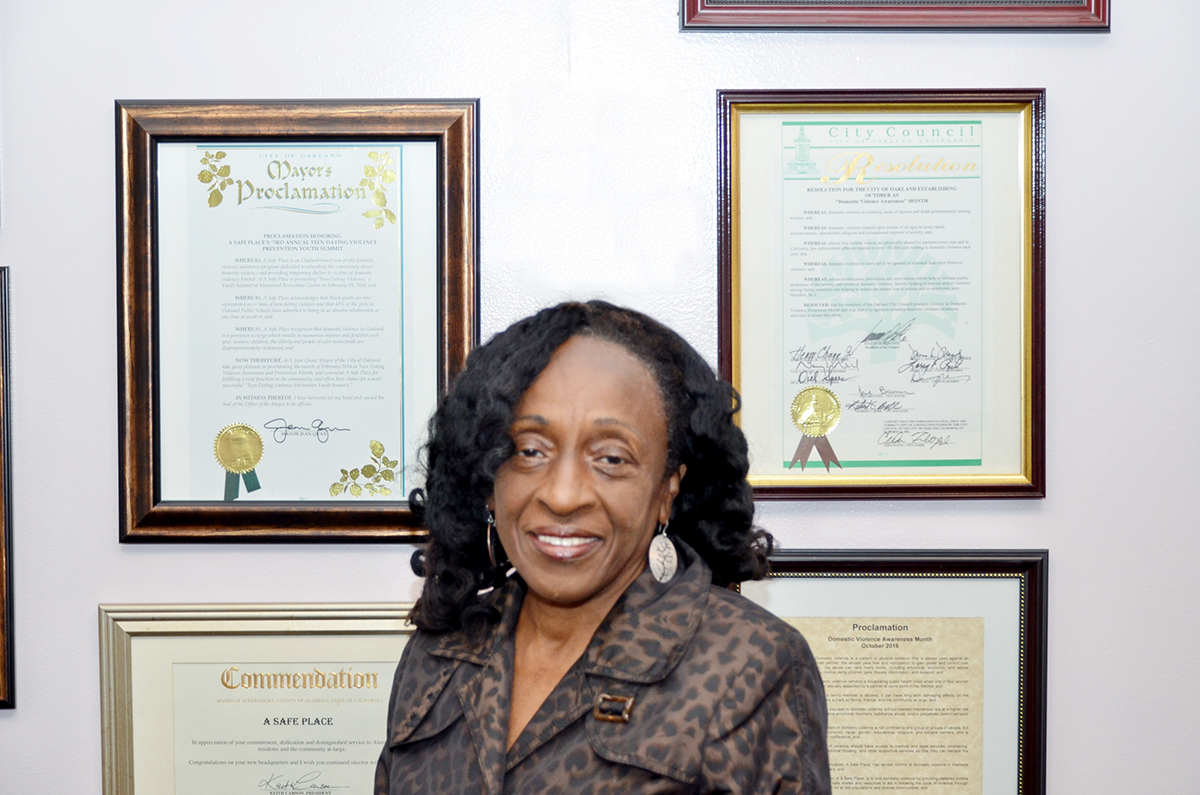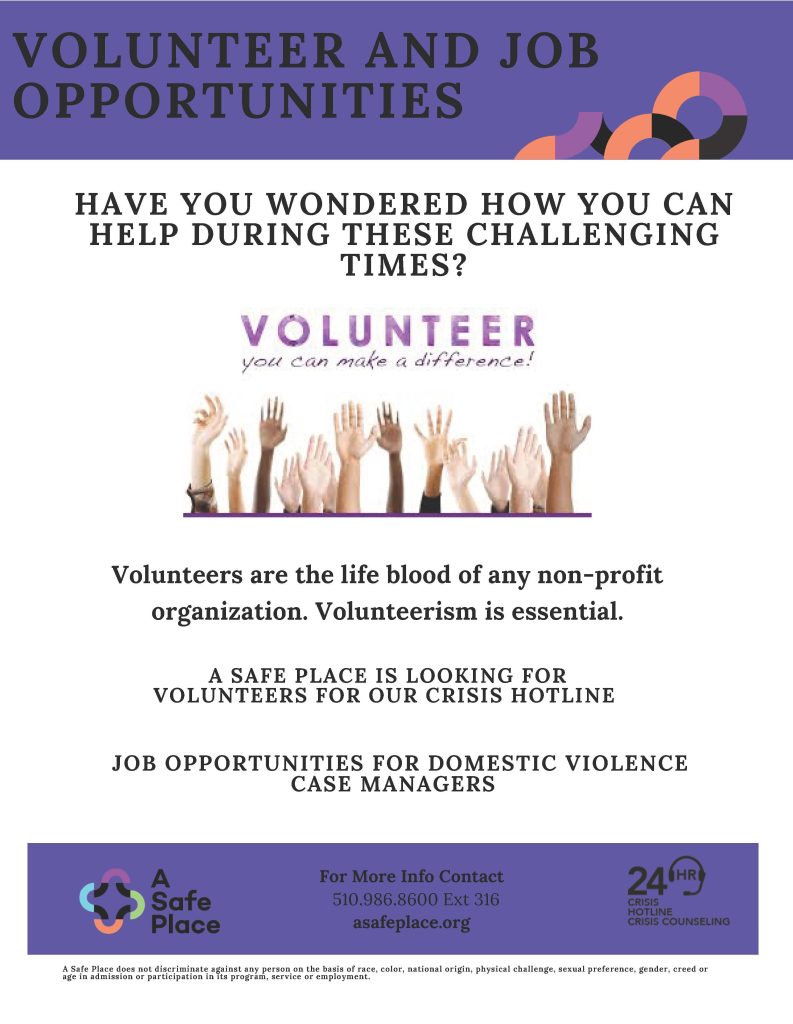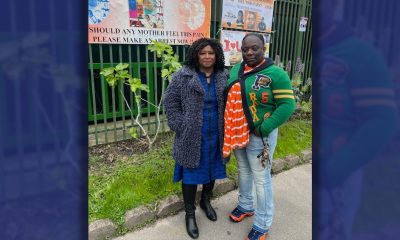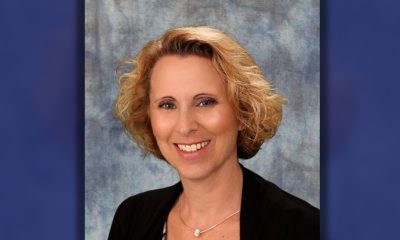Activism
Shelter-in-Place Order for COVID-19 Poses Danger to Domestic Violence Victims

For several months, the most vulnerable have been suffering. COVID-19, in the form of shelter-in-place, has created another level of isolation, not only for adult victims but also for children. Unfortunately, there is evidence that during this imposed isolation domestic violence has been escalating. Most recently, the U.N. described the worldwide increase in domestic violence as a “shadow pandemic” alongside COVID-19.
Reports from women speak to their feelings of uncertainty. “Should they try and leave or stick it out.” Many feel trapped, while others are leaving due to the increased abuse. The consequences are horrific for all women living with a perpetrator. Many women fear the unknown. Trapped in the home during the pandemic, they are afraid to leave since the options to escape that existed before COVID-19 no longer exist. Family and friends are reluctant to welcome another family into their homes due to safety issues created by the virus. Many shelters have limited capacity for the same safety reasons. Some survivors are seeking support via texting or finding other creative means to communicate.
Another problem was the closure of the courts and, even though they are open now, are working at a significantly reduced level. Child custody orders, protective orders and other domestic violence-related matters are not getting the same attention due to restricted court schedules. Arrests for domestic violence are often disputed by survivors, making it difficult for law enforcement to intervene.
Finally, one of the greatest fears among those experiencing domestic violence, and those who are at risk of being abused, is that they might become homeless due to lack of income. In the economic crisis caused by COVID-19, many workers have been furloughed, and this loss of employment can result in families at risk being trapped in an unsafe home. They cannot afford to sustain the rent alone and will stay with the perpetrator since he “helps with the bills.” Women tell stories of perpetrators threatening to “put them out” on the streets since some survivors are facing unemployment.
Power and control are primary issues with perpetrators. Withholding financial and other kinds of support are the primary ways they perpetrate financial abuse. Threats and psychological abuse create a volatile and hostile environment for both the survivor and the children.
Children are living in homes each day with no outlet or escape; they cannot speak out or receive the daily support normally received through school and other extracurricular activities. The mental and psychological effects of this time in confinement for children will be long term.
Children who witness domestic violence are often traumatized. Due to the rising levels of tension and anger in abusers caused by the stresses of shelter-in-place and unemployment, children may also be physically abused. The long-term effects will become manifest as children return to school. Protective factors must be considered in supporting children who are living in homes where domestic violence is occurring.
Minority communities are often most affected during disasters, often forced to compromise their health to maintain employment and it is even worse for survivors of domestic violence. These life stressors, along with constant mental and physical abuse, will create a need for mental health support in reducing the trauma experienced during the pandemic.
Shelter-in-place is critical and is one of the most important methods to remain safe amid the COVID-19. However, it has had a tremendous negative impact on survivors of domestic violence and their children.
Carolyn Russell, executive director of A Safe Place Domestic Violence Assistance Program, holds a master’s degree in social work and a master’s degree in forensic psychology.

Activism
Oakland Post: Week of April 24 – 30, 2024
The printed Weekly Edition of the Oakland Post: Week of April 24 – 30, 2024

To enlarge your view of this issue, use the slider, magnifying glass icon or full page icon in the lower right corner of the browser window. ![]()
Activism
Oakland Post: Week of April 17 – 23, 2024
The printed Weekly Edition of the Oakland Post: Week of April 17 – 23, 2024

To enlarge your view of this issue, use the slider, magnifying glass icon or full page icon in the lower right corner of the browser window. ![]()
Activism
Oakland Schools Honor Fred Korematsu Day of Civil Liberties
Every Jan. 30, OUSD commemorates the legacy of Fred Korematsu, an Oakland native, a Castlemont High School graduate, and a national symbol of resistance, resilience, and justice. His defiant stand against racial injustice and his unwavering commitment to civil rights continue to inspire the local community and the nation. Tuesday was “Fred Korematsu Day of Civil Liberties and the Constitution” in the state of California and a growing number of states across the country.

By Post Staff
Every Jan. 30, OUSD commemorates the legacy of Fred Korematsu, an Oakland native, a Castlemont High School graduate, and a national symbol of resistance, resilience, and justice.
His defiant stand against racial injustice and his unwavering commitment to civil rights continue to inspire the local community and the nation. Tuesday was “Fred Korematsu Day of Civil Liberties and the Constitution” in the state of California and a growing number of states across the country.
One OUSD school is named in his honor: Fred T. Korematsu Discovery Academy (KDA) elementary in East Oakland.
Several years ago, founding KDA Principal Charles Wilson, in a video interview with anti-hate organization “Not In Our Town,” said, “We chose the name Fred Korematsu because we really felt like the attributes that he showed in his work are things that the children need to learn … that common people can stand up and make differences in a large number of people’s lives.”
Fred Korematsu was born in Oakland on Jan. 30, 1919. His parents ran a floral nursery business, and his upbringing in Oakland shaped his worldview. His belief in the importance of standing up for your rights and the rights of others, regardless of race or background, was the foundation for his activism against racial prejudice and for the rights of Japanese Americans during World War II.
At the start of the war, Korematsu was turned away from enlisting in the National Guard and the Coast Guard because of his race. He trained as a welder, working at the docks in Oakland, but was fired after the bombing of Pearl Harbor in 1941. Fear and prejudice led to federal Executive Order 9066, which forced more than 120,000 Japanese Americans out of their homes and neighborhoods and into remote internment camps.
The 23-year-old Korematsu resisted the order. He underwent cosmetic surgery and assumed a false identity, choosing freedom over unjust imprisonment. His later arrest and conviction sparked a legal battle that would challenge the foundation of civil liberties in America.
Korematsu’s fight culminated in the Supreme Court’s initial ruling against him in 1944. He spent years in a Utah internment camp with his family, followed by time living in Salt Lake City where he was dogged by racism.
In 1976, President Gerald Ford overturned Executive Order 9066. Seven years later, the 9th Circuit Court of Appeals in San Francisco vacated Korematsu’s conviction. He said in court, “I would like to see the government admit that they were wrong and do something about it so this will never happen again to any American citizen of any race, creed, or color.”
Korematsu’s dedication and determination established him as a national icon of civil rights and social justice. He advocated for justice with Rosa Parks. In 1998, President Bill Clinton gave him the Presidential Medal of Freedom saying, “In the long history of our country’s constant search for justice, some names of ordinary citizens stand for millions of souls … To that distinguished list, today we add the name of Fred Korematsu.”
After Sept. 11, 2001, Korematsu spoke out against hatred and discrimination, saying what happened to Japanese Americans should not happen to people of Middle Eastern descent.
Korematsu’s roots in Oakland and his education in OUSD are a source of great pride for the city, according to the school district. His most famous quote, which is on the Korematsu elementary school mural, is as relevant now as ever, “If you have the feeling that something is wrong, don’t be afraid to speak up.”
-

 Community2 weeks ago
Community2 weeks agoFinancial Assistance Bill for Descendants of Enslaved Persons to Help Them Purchase, Own, or Maintain a Home
-

 Activism3 weeks ago
Activism3 weeks agoOakland Post: Week of April 3 – 6, 2024
-

 Business2 weeks ago
Business2 weeks agoV.P. Kamala Harris: Americans With Criminal Records Will Soon Be Eligible for SBA Loans
-

 Community2 weeks ago
Community2 weeks agoAG Bonta Says Oakland School Leaders Should Comply with State Laws to Avoid ‘Disparate Harm’ When Closing or Merging Schools
-

 Activism2 weeks ago
Activism2 weeks agoOakland Post: Week of April 10 – 16, 2024
-

 Community1 week ago
Community1 week agoOakland WNBA Player to be Inducted Into Hall of Fame
-

 Community2 weeks ago
Community2 weeks agoThe Year Ahead: Assembly Speaker Rivas Discusses Priorities, Problems
-

 City Government2 weeks ago
City Government2 weeks agoLAO Releases Report on Racial and Ethnic Disparities in California Child Welfare System




















































